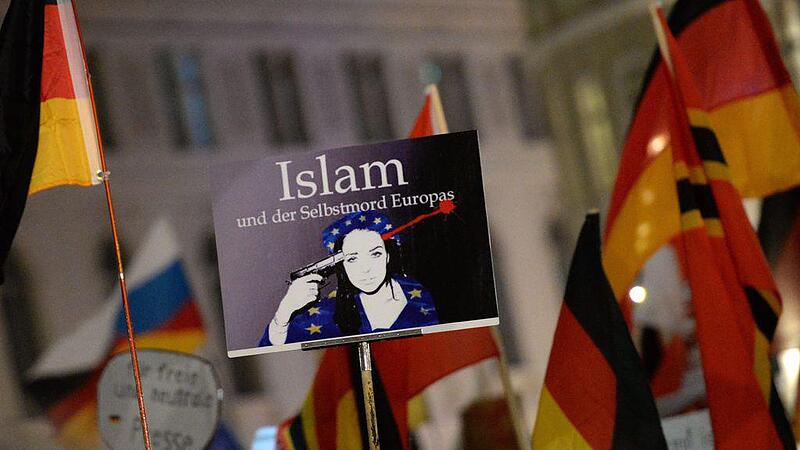In doing so, Pegida was able to optimize her own frames and regain importance with the threat she claimed. The communication researcher Dennis Lichtenstein from the Institute for Comparative Media and Communication Research of the Austrian Academy of Sciences (ÖAW) and the University of Klagenfurt, together with colleagues from Switzerland and Germany, examined how the movement managed to shape the political debates with its aggressive messages and why it was able to mobilize so many people.
“Proven extremist aspiration”
Pegida – classified by the Office for the Protection of the Constitution of Saxony in May of this year as a “proven extremist endeavor” – attracted up to 25,000 people between 2014 and 2016 in protests against an alleged “Islamization of Europe” they claimed.
To do this, the researchers examined the frames of Pegida, i.e. how the movement embedded events and topics in its interpretive frames and narrative patterns. Specifically, they analyzed 63 speeches that were given by 27 speakers at 14 Pegida rallies between 2014 and 2016. It turned out that Pegida, whose popularity was already on the decline in the summer of 2015, “used the event to regain topicality itself.”
Refugee crisis as an “opportunity”
“In the beginning, the Muslim religion was framed as the central threat,” explained Lichtenstein in a broadcast by the Austrian Academy of Sciences. With the refugee movement in 2015, the frames of Pegida changed “and asylum seekers were increasingly brought into the picture as an alleged danger”. The so-called “refugee crisis” was an opportunity for the right-wing movement to test and optimize its own frames. Religious references, ethnic references, asylum and migration had been set by the Pegida speakers as “the other in opposition to the Christian majority society and as a threat”. That is part of a right-wing populist strategy, said Lichtenstein.
The fact that movements like Pegida have to maintain cohesion inwards and the threat from outside through their frames is also noticeable in their speeches: “This happens not only through apocalyptic images, but also through derogatory word games that are supposed to convey the feeling of threat, for example when the rallies speak of ‘explosive believers’ instead of strict believers, of Koranderthalers – an allusion to the Koran – or of cashiers, which brings the words Syrians and cashiers together. “
In the opinion of communication scientists, all of this has left its mark on politics: “It can be assumed that this vocal minority has exerted a certain amount of pressure on politicians through their protests. The restrictions on family reunification, the reform of asylum law and finally the EU The Turkey deal are measures that have also reacted to the right mood, “says Lichtenstein.
Source: Nachrichten




